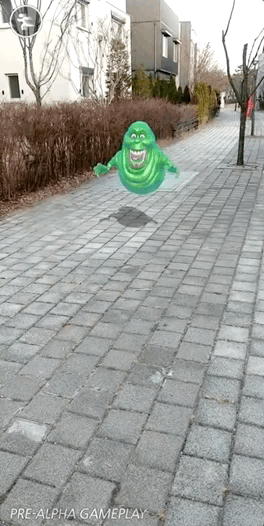Google publicly launches ARCore 1.0 on 13 phones, will begin expanding Lens preview

After playing around in the experimental phase, Google is bringing its ARCore augmented reality platform to its 1.0 release with availability on over 100 million Android devices.
If you have a new Pixel phone, you may have been able to play with Google’s AR Stickers that brought Star Wars and Stranger Things into the real world. With ARCore’s launch today, developers are now able to put their own creations into the Play Store and users with phones left out of the preview are able to take a first shot at phone augmented reality.
Google has already been working with companies like Snap, Sony, Wayfare, Porsche and others to bring ARCore app experiences to life.

To make use of the AR functionality you’ll need one of the following phones: Pixel, Pixel XL, Pixel 2, Pixel 2 XL, Galaxy S8, S8+, Note8, S7 and S7 edge, LGE’s V30, V30+ (Android O only), ASUS Zenfone AR and OnePlus’s OnePlus 5. That’s obviously just a small subset of all of the Android phones out there today, but Google says they did hit their target with that bunch of pushing ARCore onto 100 million phones at launch.
Google also specifically detailed that they are working with “Samsung, Huawei, LGE, Motorola, ASUS, Xiaomi, HMD/Nokia, ZTE, Sony Mobile, and Vivo” to bring ARCore onto soon-to-be-launched devices, so you can likely expect that the Galaxy S9 will have ARCore support ready-to-go for instance.
In terms of functionality compared to Apple’s ARKit, Google is launching something pretty similar. The one difference might be that Google offers a bit more flexibility when it comes to the size of surfaces that you’re able to project digital models onto, ARCore 1.0 will launch with “improved environmental understanding that enables users to place virtual assets on any textured surfaces.”
While ARKit focuses on large horizontal and vertical planes — think floors, tables and walls — ARCore is just thinking about surfaces in general so if you want to put an AR creation into the palm of your hand or onto the side of a pillow you can, while you’re of course also able to put something onto the wall or floor.
While ARCore will be exiting its preview and hitting 1.0 status, Google is still working with its preview of its Lens computer vision tool, though it says it will be bringing it to more users going forward. The functionality will soon be available to users of the Google Photos app running Android or iOS 9 and above. This will allow features to use Lens features after a photo has been taken, the live functionality inside Google Assistant will be coming to some upcoming devices from Samsung, Huawei, LG, Motorola, Sony, and HMD/Nokia.